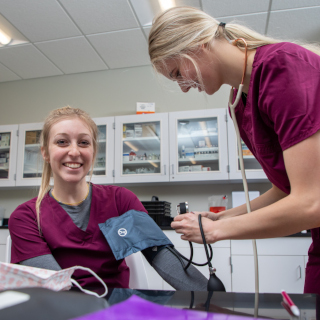Financial Aid
Congratulations! You’ve been accepted into a health profession school! But, how are you going to pay for it? Unlike PhD programs that often support graduate students with tuition waivers and teaching or research stipends, medical education is a professional degree that most students pay for on their own. And how do most students pay for medical school? Loans. The good news is, once you complete your degree, you’ll be earning a wage that will allow you to pay back your loans and live comfortably. It’ll take time, but it’s manageable.
Average Costs
In 2012, the median educational debt of graduating medical students was $170,000, with 86% of graduates carrying outstanding loans (Youngclaus & Fresne, 2013). The best way to determine the realized cost that you’ll face as a medical student is to determine the four-year cost of attendance (COA) of a given school, which includes tuition, fees, and living expenses. For public schools, the median COA for the 2012 graduating class was $196,661 and for private schools it was $275,305 (Youngclaus & Fresne, 2013). Also consider that schools have charge different rates for in-state vs. out-of-state tuition. To determine the COA you expect to incur at the schools you’ve applied to, consult the school’s website or check out the Medical School Admission Requirements (MSAR).
Loans
Federal Student Loan options include:
Private loan options include:
It is important to remember that all loans come with interest and are expected to be repaid within a specific time frame. If you take out a loan for $170,000 with an interest rate of about 7%, you will actually repay a total of $261,000 - $476,000 over the course of ten to twenty years (Youngclaus & Fresne, 2013 p. 14). Loan repayment assistance is offered through the National Health Service Corps.
Scholarships
Medical school scholarships are not as common as scholarships for undergraduate degrees. With that said, most medical schools do have highly competitive scholarships that you can apply for. Visit the school’s website to learn more about scholarships offered for their program.
The National Health Service Corps also offers scholarships to students pursuing primary health care professions training in return for a commitment to provide health care to communities in need, upon graduation and the completion of training.
Alternatively, branches of the United States military also offer competitive scholarships that help defray the cost of medical school to qualified applicants. To learn more about these scholarship options, visit the Health Professions Scholarship Program information pages through the Army and Navy.
WWAMI & WICHE
WWAMI is a cooperative program of the University of Washington School of Medicine and the states of Wyoming, Alaska, Montana and Idaho. It is a program that makes medical education accessible to students in the northwestern United States by decentralizing the educational process and by sharing existing facilities and personnel in universities and communities in the WWAMI states. Support of WWAMI by the State of Montana allows 30 qualified Montana residents to be admitted to the University of Washington School of Medicine each year. Please visit the Montana WWAMI website for more information about costs and financial assistance.
The WICHE (Western Interstate Commission for Higher Education) offers a Professional Student Exchange Program (PSEP) that enables students in 11 western states to enroll in selected out-of-state professional program usually because those fields of study are not available at public institutions in their home states (for Montana, WICHE is available for medicine, dentistry, occupational therapy, optometry, podiatry and veterinary medicine). Students enrolled in WICHE Professional Student Exchange Program receive preference in admission. They pay reduced levels of tuition: for most students, resident tuition in public institutions or reduced standard tuition at private schools. The home state pays a support fee to the admitting school to help cover the cost of students' education. Please visit the WICHE website for more information regarding PSEP support fees.
